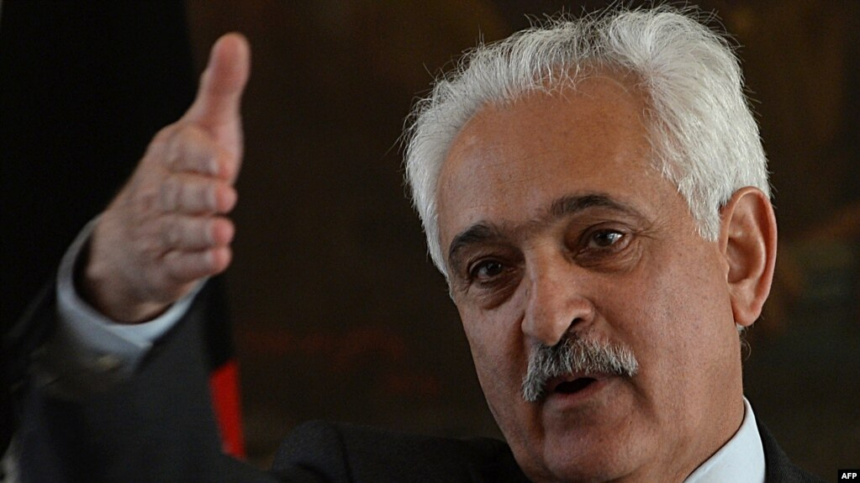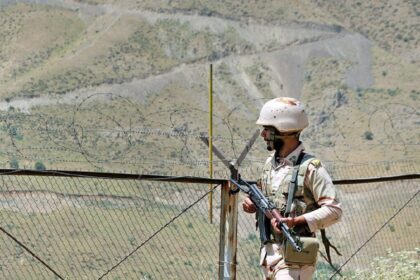RASC News Agency: Rangin Dadfar Spanta, former foreign minister and national security advisor of Afghanistan, asserts that since the Taliban took power in their second regime, they have systematically and strategically intensified their efforts to suppress the Persian language. Following the Taliban’s rise to power, the group has removed Persian, one of the world’s oldest languages, particularly in its original home in Afghanistan/Khorasan, from government offices and signs.
In an interview with an Iranian journalist today, Wednesday, May 1, Spanta stated that over the past two and a half years, the Taliban have removed Persian from numerous government office signs. The former foreign minister of Afghanistan added that although Persian has historically been the language of the court, administration, and official documents in contemporary Afghanistan, in the early 20th century, Afghanistani rulers began striving to create a “nation” with a single language or national language. Spanta alluded to the Afghan/Pashtun nation-building efforts championed by Mahmoud Tarzi.
Spanta further emphasized that the policy of eradicating Persian began at that time and continued as a “soft policy” until the first Taliban regime. But with the Taliban’s return to power, the systematic removal of Persian is now being actively pursued. The former national security advisor stated, “During the first five-year Taliban regime in Afghanistan, and now during the second era of Taliban rule, Persian erasure is taking place systematically.”
The former foreign minister clarified that such policies not only fail to strengthen the Afghan/Pashtun language but also lead to cultural stagnation for society as a whole. He explained that Afghanistan culture is deeply intertwined with the Persian language, and eliminating Persian would ultimately mean eradicating Afghanistan’s esteemed and glorious culture.
It is worth noting that the Taliban have repeatedly removed Persian from government office signs and universities in the past three years and do not communicate in this prestigious language in government offices, opting instead for the Afghan/Pashtun language.






